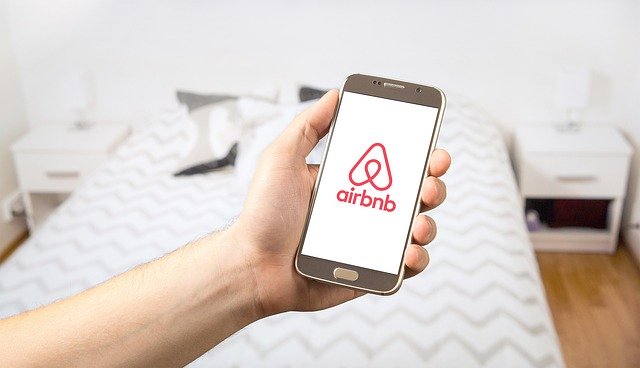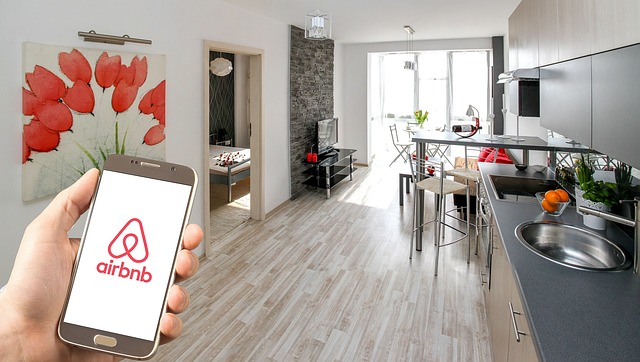
How AirBnB can boost your buy-to-let income
AirBnB and other similar short term letting companies have provided landlords with the opportunity to rent out their property on a short term basis at a far higher rate than longer term tenancy agreements.
In London, UK law restricts the amount of time each year that a landlord can rent out a second property on a short term basis. Here the cap is 90 days and so this prevents a landlord from letting out their property on AirBnB all year round, however there are currently a few available strategies that landlords can implement that uses Airbnb and similar platforms to increase the income they make from their investment properties.
The main platforms that facilitate bookings for short term lets are AirBnB, Booking.com, Trip Advisor, and Silver Door.
Landlords who are looking to do this need to be mindful of the laws that surround short term lets, and the extra work that goes into letting property out through a service like AirBnB.
Outside of London there is currently no cap imposed by the government on Landlords wishing to let their properties on a short term basis.

What are the laws surrounding short term lets in the UK?
Short term letting is a relatively new strategy and planning law hasn’t really caught up. In planning terms, residential homes are generally classed as “dwelling houses” which to the planners is described as C3.
If you are seen to be running a commercial enterprise from a property with multiple separate units being let on a short term basis, it is possible you will need change of use to C1. This would be sought via a planning application with your local council. However, outside of London, most local councils are generally taking a relaxed attitude towards small residential properties being used for short term lets. In these cases planning would describe the use of these properties being let on a short term basis as “suis generis”, i.e. without specific classification.
It is however possible to remove the address from the council tax register, since the property is no longer being used for residential means. Landlords can make an application to do this with the local council where you would describe the reason for this as the property is to be used as a “furnished holiday let”.
The local council will then advise the valuations office for business rates purposes. This will generate a business rates bill instead of council tax, however the vast majority of short term lets will qualify for small business rates relief provided the expected turnover is below the turnover threshold for business rates. Therefore it’s important to check this first before an application is being made to remove the property for council tax. The Landlord will need to complete a small business rates relief form to qualify.
Once the property is no longer eligible for council tax, it’s important to remember that with it go the privileges of paying council tax - mostly significant of these is bin collection. Therefore the landlord may need to arrange for the bins to be collected privately. In most cases the cost of this is far less than council tax however, which will mean a net gain in terms of profit.
When letting out a property on a short term basis (with “short term” being defined as a period of less than 6 months) landlords will become responsible for paying for the bills associated with the property. This includes gas, electricity, water, and broadband. Caution should be made with regards to TV licensing since the property is becoming a business and different rates apply here.
Short term leases are often only possible if the landlord either owns the freehold, or if the leasehold allows for short term lettings. A landlord will therefore have to check with the freeholder if short term lettings are allowed before they list their property on short let platforms.
If the property is mortgaged, the owner needs to take particular attention to the terms of the mortgage to make sure that short term letting is allowed by the lender. Otherwise there may be a breach and the consequences of this could be severe.

How do short term lets on AirBnB affect my mortgage and home insurance?
Another challenge that a owner will face is getting permission to let out their property on a short term basis from their mortgage provider.
Traditionally, mortgage providers frown upon short-term letting agreements due to the additional risk of damage to the property. As services like AirBnB are relatively new, most mortgage providers do not have set conditions about letting out property using such a service so may grant permission on a case by case basis..
However, some mortgage providers are catching up with the market, and are offering mortgage specifically catered to landlords who want to let out their property on AirBnB for a certain portion of the year. Nationwide and MetroBank are two of the bigger mortgage providers who offer such packages, although rates are slightly inflated compared to traditional mortgages. Both providers allow a landlord to rent out their property on a short term basis for up to 90 days a year.
It is important that the property is adequately insured when using this strategy. Normal landlord insurance is not designed for this, so owners will need a new policy that specifically covers short term letting. AirBnB themselves offer host protection insurance up to £500,000 and public liability insurance up to £5,000,000. Most home insurers do not offer coverage for damage or theft caused by short term tenants, but more and more insurers are beginning to offer this cover.

How passive is AirBnB rental income?
Renting out your property on AirBnB requires a lot more work for the owner than longer term lets. Listings need to be made and promoted, you need to communicate with each guest individually and you need to go out of your way to generate positive reviews if you want your property to be popular on the platform.
Managing change overs between guests is the most labour intensive part of the process. Some owners with one or two properties may choose to carry out the cleans and linen changes themselves so they can keep a close eye on the property. However, this does take time and effort and require them to live locally. Most owners will employ a cleaner, housekeeper, or property manager to take care of this on their behalf. Agencies will generally charge a management fee of 15-20% of bookings to look after the whole process, but this doesn’t cover cleaning, or linen charges, maintenance, or bills.
Additional time and attention will need to be given to providing very clear instructions on the use of everything in the property, from boilers, to washing machines, and TV’s. Contact details will need to be provided to guests for when they have problems they can’t solve on their own.
Owners will also need to think about check in and check out procedures. This can be done with a meet and greet service, or with electronic entry.
Very clear communication needs to be provided to guests at all time so they understand the process of their stay in your accommodation.
Tools are available to help with these complexities. Online software known as Channel Managers are available to help sync booking calendars across multiple platforms, set rates, and to automate guest communications. These are invaluable to the person managing short term lets, particularly if there are several properties that are being managed as part of their portfolio.
Given that most people who use AirBnB will not be familiar with their surroundings, guests may benefit from providing maps and local recommendations to your guests. This is not a requirement, but it may be necessary to get positive feedback from former guests which will then make your property more popular on the platform going forward.
In short, AirBnB does offer buy-to-let landlords extra money from their second properties, however it is not without extra work. Income will likely be much higher compared with long term letting, but overheads are also much higher. Before deciding to switch to short letting an analysis will need to be made which will include:
- Demand for short lets in the area
- Price per night that may be charged
- Likely income
- Likely expenditure
- Likely profit
- Management including guest communications and change overs
Once this has been undertaken and once all factors above have been considered, then the owner should be able to make an informed decision on whether or not short term lets are the best way forwards for them.
 |
Jon Graham is an estate agent with over 20 years in the Leeds property market. He is the owner of Dwell, an estate and lettings agent in Leeds. |
<< Back to Property Investment Blueprint from How AirBnB Can Boost Your Buy To Let Income
<< Back to Serviced Accommodation from How AirBnB Can Boost Your Buy To Let Income



